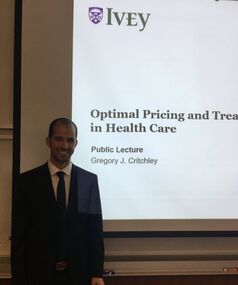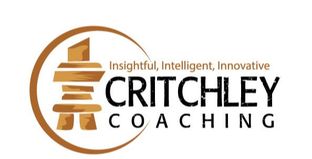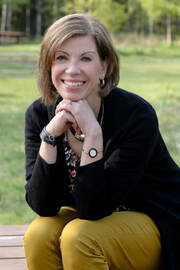
This has been quite a journey for Greg. As we talked about his milestone this week, we calculated (no fancy formula, just some mental arithmetic😊) that he has spent 22 years (13 + 4 + 1 + 4) as a student. When he left the banking world to pursue his MBA in 2012, little did any of us have any idea that upon its completion, and then the completion of a few years instructing at the university, he would be defending his thesis for his PhD this week.
To say we are proud, is an understatement. To say what we are proud of is the actual degree would be less than truthful. What I am most proud of, what I have always been most proud of, is the way Greg has handled himself throughout this gruelling process. As with everything he does, he decides who he will be to make himself proud at the end, then he just gets to work with the doing.
Greg’s final exam came in two parts. He first gave a public presentation of the research he’s done over the past four years. I was able to fly to Ontario to witness this. Following the public presentation, Greg entered another room alone, to face a three-hour oral exam. Three examiners, none of whom had worked with him, from different parts of the country, had previously read his almost three-hundred-page dissertation. They, monitored by a chairperson, and observed by his advisors, used the three-hour oral exam to question him about every part of his detailed mathematical research.
Greg’s wife, Cara, and I, left campus for a while during the examination. Upon our return, we waited in the hallway for the final hour of the interminable exam. Finally, finally, the doors were opened and we were invited into the room to meet the examiners, his advisors and to hear the wonderful news. A champagne cork popped; one of his advisors had clearly anticipated this positive result.
As we chatted in the room, suspended in that state of knowing the result but not yet having it sink in, one of the examiners shook Greg’s hand in congratulations. He said, ‘Greg, your work is excellent. We don’t often get work of this calibre. Your paper was so enjoyable to consume.’
Enjoyable to consume.
This is not an expression I have ever used, or even heard used. Furthermore, I haven’t really considered the idea of consuming in much other context than consuming food. But of course, we consume non-food items every day. Since then, I keep thinking about this interesting way of considering the things we take into our minds, our hearts and our bodies.
This examiner was making the point, as did each of the others, that the material in the paper was presented in such a way as to be easy to follow and understand. More than just forcing himself to concentrate and try to connect dots, he had been able to enjoy the process and absorb the content. I suspect he also thought it was substantive. That he should say it was enjoyable to consume, could lead me to believe it nourished him in some way.
How often do we consume things that do not have this effect on us? More importantly, how often do we ‘feed’ things to others that are not at all enjoyable to consume.
I began to consider the number of interactions each of us might have in a typical week. I wondered, during how many of those interchanges was I providing the person I was interacting with, something enjoyable to consume?
Recognizing that each of our interactions either adds positively or negatively to our relationship and to how we think and feel about ourselves, it might be worth considering exactly what it is we are offering for consumption.
Sometimes we are so determined to have our point of view known, we fail to notice the indigestion it causes in others. I hate to think that carelessness with my words has given others things not so enjoyable to consume.
When Greg wrote his thesis, he spent months considering and reworking how to take complex, perhaps not particularly enthralling material for most of us, and turn it into something easily consumed. Then, as he created his accompanying visual presentation, like any good chef, he considered presentation, delivery and flavour. He added a pinch of levity (really, this is possible even in mathematics!) and examples to make it relatable and even enjoyable to consume.
I’m not expecting to enrol in a PhD program any time soon. I am however, expecting to have many interactions with family, friends, colleagues, and clients. I am going to spend some time working on my recipes for delivery. I have a feeling there is some room for improvement in the ‘enjoyable to consume’ category.
My inquiry for you this week is, ‘What would make this easy to consume?’
Elizabeth is a certified professional Leadership Coach, and the owner of Critchley Coaching. She is the founder and president of the Canadian charity, RDL Building Hope Society. She works with corporations, non-profits and the public sector, providing leadership coaching. She creates and facilitates custom workshops for all sizes of groups. She has particular expertise in facilitating Strategic Plans for organizations. Contact Elizabeth to learn how to create interactions that are easy to consume.


 RSS Feed
RSS Feed